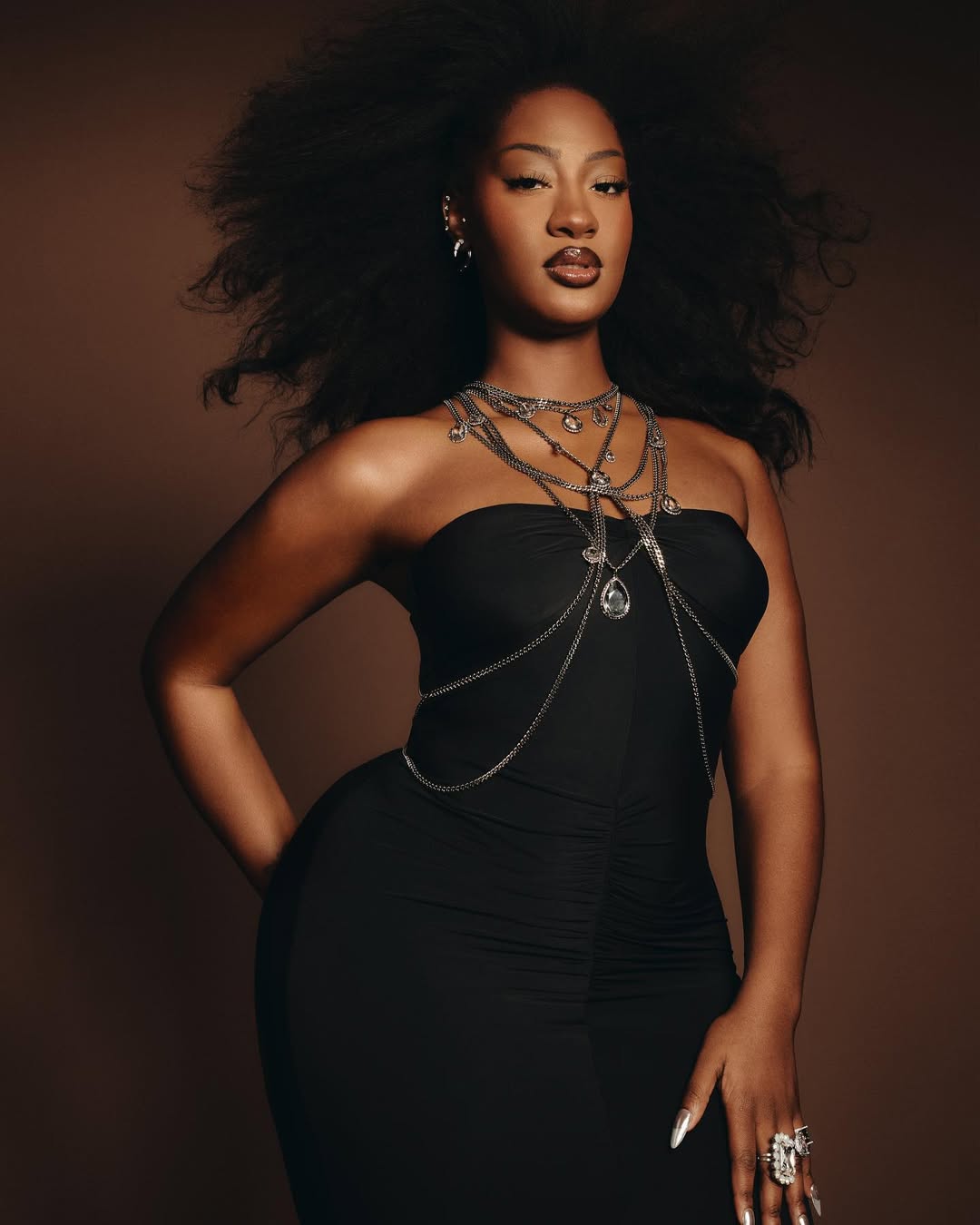From the bustling streets of Lagos to the grand stages of the Grammys, Nigerian singer-songwriter Tems has taken the world by storm not by conforming, but by staying unapologetically true to herself. “Authenticity is everything to me,” she says. “That’s the one thing I cannot compromise on because that’s all I have who I really am.”
When Tems stepped onto the stage at New York’s MetLife Stadium for the FIFA Club World Cup halftime show in July 2024, millions of viewers around the world watched as she delivered a soulful, unforgettable performance. The 30-year-old admits the moment was nerve-wracking, but above all, it was an honor. For some, it was their first encounter with the Nigerian star; for many others, it was yet another reminder that Tems is rewriting the narrative of African music on the global stage.
Born Temilade Openiyi in Lagos, Tems began crafting her sound at a young age. With few industry allies and little recognition, she learned to produce her own music a bold move for a young woman in a male-dominated field. “It was really hard to get people to take me seriously,” she recalls. “Not just as a producer, but as a singer. I didn’t feel safe or supported for a very long time.” Yet those early struggles became her greatest motivation.
Her breakthrough came in 2020 with Wizkid’s “Essence,” the first Nigerian song ever to break into the Billboard Hot 100. By 2022, her influence had gone global her track “Higher” was sampled on Future and Drake’s Grammy-winning hit “Wait for U,” making her the first Nigerian woman to top the Billboard chart. Her solo single “Free Mind” became an international anthem, while her collaborations with Beyoncé (“Move”) and Rihanna (“Lift Me Up”) solidified her as one of Africa’s most powerful musical exports.
In 2025, Tems’ journey reached another milestone as she won a Grammy Award for Best African Music Performance for her song “Love Me JeJe,” a modern reimagining of a Nigerian classic. Yet for all her accolades, Tems insists fame was never the goal. “I wasn’t thinking, is this working or not? I was just like, I’m going to be me. If being me lands me under the bridge, cool. If it lands me on top of the mountain, cool.”
That commitment to authenticity has become her defining trait — and now, she’s channeling it into empowering others. In August 2025, Tems launched the Leading Vibe Initiative in Lagos, a mentorship and training platform aimed at helping women break into the music industry. “There are so many talented women who could be producers, managers, engineers — but they’re not even visible,” she explains. “I want to make them visible and redefine the perception of women in music.”
The initiative, open to women ages 18 to 35, began in Lagos but has plans to expand across Africa, with Kenya as the next stop. At its launch, Tems was greeted by dozens of young singers, producers, and sound engineers eager to learn from her journey. “It’s amazing how many people have come and supported us,” she said at the event. “This is a journey we’re all taking together, and I couldn’t have found a better way to start.”
Her motivation stems from her own experience fighting to be taken seriously in an industry dominated by gatekeepers. “People started taking me seriously when my music reached a place they couldn’t fathom,” she says. “They were like, how did she do that? We didn’t give this to her.”
Tems’ perspective on success is grounded and wise beyond her years. “Fame is not what you want,” she reflects. “You could be famous and uncomfortable, famous and unsuccessful. What you really want is to be comfortable and able to provide for yourself. Fame is not always that.”
Defining oneself, she believes, is essential in an industry that constantly tries to label and reshape artists. “It’s very important for you to define who you are, because if you don’t, other people will.”
Through her music and her mission, Tems is proving that true power lies not in fame or accolades, but in authenticity, purpose, and lifting others up along the way. As she continues to chart her global rise, her most lasting legacy may not just be the songs she sings, but the opportunities she creates for women across Africa women who, like her, refuse to be silenced.














Leave a comment